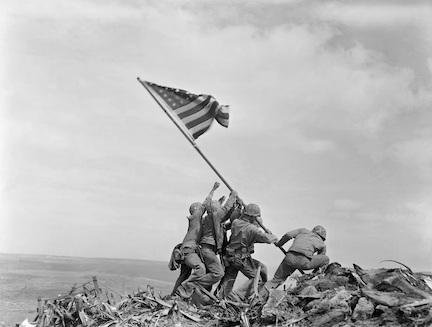Medgar Evers is my hero.
On June 12, 1963, Medgar Evers was murdered in the driveway of his home in Jackson, Mississippi.
 “Hero” is a word thrown around so loosely that it has almost no real meaning left. The term “hero” is used to describe multimillionaires who can sink a putt, vicious criminals who ruin lives and then repent, and teenagers who pretend to play guitar on a video game.
“Hero” is a word thrown around so loosely that it has almost no real meaning left. The term “hero” is used to describe multimillionaires who can sink a putt, vicious criminals who ruin lives and then repent, and teenagers who pretend to play guitar on a video game.
The Carnegie Hero Fund has a perfect definition: “someone who voluntarily leaves a point of safety to assume life risk to save or attempt to save the life of another.” By that definition – or any definition – Medgar Evers is a hero.
After serving in World War II, Evers returned to his native Mississippi. He had an honorable discharge and a sterling record, but his rights as a Veteran were undermined by the omnipresent injustice he received as an African-American. Denied admission to the University of Mississippi, he still managed to get a college degree, begin a family with a woman every bit his equal, and channel his anger over discrimination into a movement that would change Mississippi forever.
At a time when Congress was too timid to pass a bill making it illegal to murder African-Americans, in a state where no white person had ever been convicted of killing a black person, Medgar Evers became its first NAACP field secretary. As Mississippi reeled from one racial murder to the next, from one egregious act of discrimination to the next, Medgar Evers could always be found heroically on the right side of history. When Emmett Till was murdered, Medgar Evers went undercover, found the critical witness, protected him, and made sure he could testify. When Clyde Kennard and James Meredith fought to attend Ole Miss, Medgar Evers stood by their side. His life was threatened daily. Yet he refused to walk away from the crushing responsibility and terrible burden of standing for justice against a state that had made apartheid a way of life. Dist. Atty. Bill Waller twice prosecuted the killer; each trial ended with a hung jury.

Bill Waller arrives at the first Beckwith trial.
Many in the North could not fathom how Mississippi did not send a killer to prison despite overwhelming evidence. Many in Mississippi could not believe that even one member of an all-white jury would vote to convict a KKK leader for the murder of an NAACP man.
Year after year, decade after decade, Myrlie Evers sought justice for her husband. But even as Mississippi changed and its vicious racial history became an embarrassment, the killer walked free. Jerry Mitchell, a brilliant young investigative reporter for the Jackson Clarion-Ledger, latched on to the story with the tenacity of a bulldog.

His excellent writing and deep faith opened the door to what had seemed impossible: the killer’s arrest, trial, and conviction some three decades after the assassination. Mitchell has had a hand in the reopening of many “cold cases” from the Civil Rights Era. I have had the honor of working with him on two cases: the “Mississippi Burning” murders and the Clyde Kennard case. Jerry is an example of how one individual, armed with truth and rooted in faith, can change the world.
In 2004, along with three amazing students, I organized and hosted the official national day of remembrance on the 40th anniversary of Medgar Evers’ murder.

Government officials, Civil Rights veterans, celebrities, and students from every state in the nation gathered at Arlington Cemetery for the event. Jerry Mitchell was not there. He declined the personal honor of being on international television. He was too busy at his desk in Jackson, on the trail of another murderer.













Pingback: Why James Meredith Has Become Irrelevant | Speaking For A Change
Pingback: Voting Rights Are Civil RIghts
Pingback: A Modest Proposal To Fix Voting Rights
Pingback: Will Success Spoil Rock Hunter - An Appreciation
Where in Woodstock are you speaking? Is it open to the public? What time will you be speaking?
Marti,
Unfortunately, this presentation is not open to the public.
Barry
Pingback: My First Vote | Speaking For A Change